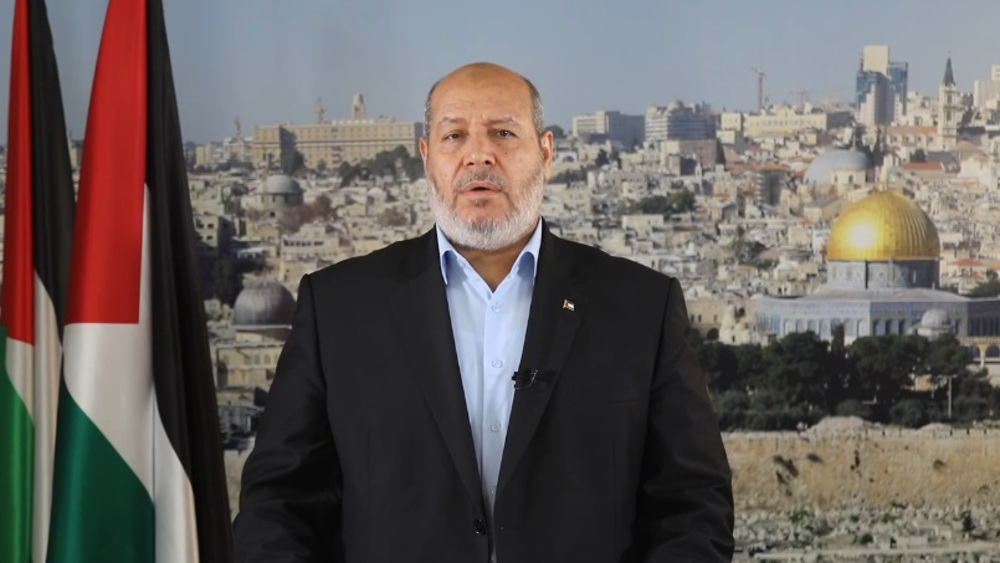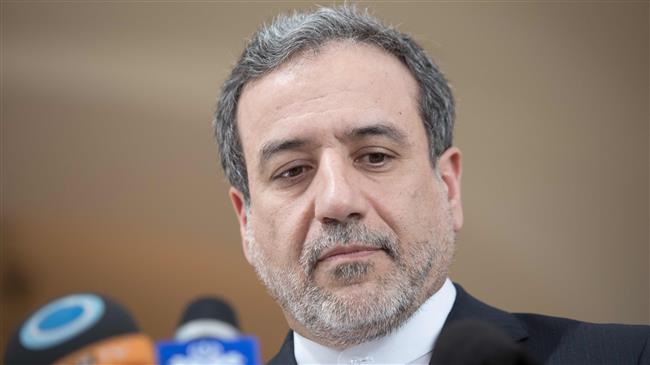Iran has not shut door on negotiations: Rouhani
President Hassan Rouhani says Iran has been left with no choice other than resistance against those who have brought it under sanctions, but the country has, at the same time, left an opening for negotiation.
“We have no choice other than resistance and steadfastness in the face of those who impose sanctions, but have not shut the door to negotiation either,” Rouhani said during an address in Tehran on Wednesday.
“We believe that wrongful and oppressive sanctions should be lifted first, and then the issue of negotiation can be addressed,” he added.
Rouhani said Iran was ready to hold talks within the framework of the P5+1 states — the US, the UK, France, Britain, Germany, Russia and China — as soon as the US lifts the sanctions it re-imposed on Iran after leaving the nuclear deal last year.
“We see no problem in that,” he noted.
Negotiations between the country and the P5+1 brought along the nuclear deal, officially named the Joint Comprehensive Plan of Action (JCPOA).
The deal removed UN and unilateral nuclear-related sanctions against Iran, which voluntarily changed some aspects of its nuclear energy program.
The United States, however, left the deal in May 2018 in a move that flew in the face of the agreement’s multi-party nature, and the fact that the accord has been ratified in the form of a UN Security Council resolution.
The US also reimposed its sanctions against Iran, and the European deal partners fell into line with the American bans by abandoning their business commitments to Tehran.
Rouhani said the nuclear talks that preceded the JCPOA resulted in the recognition of Iran’s right to nuclear enrichment activity within its own borders, an entitlement that had previously been banned under United Nations resolutions.
“No one believed we would be able to secure this issue during negotiations with the world’s big powers,” the president stated.
Saudi, Zionist obstruction
The president also commented on the Israeli and Saudi regimes’ attempts to disrupt the diplomatic process before and after the deal was hammered out.
As the negotiations were underway in the lead-up to the deal, the regimes in Israel and Saudi Arabia convinced the US to cause a delay in the talks, during which Iran could be presumably pressured into agreeing with Washington’s demands.
In order to pile up pressure, the Saudi regime brought about a drastic reduction in crude prices in order to try and tighten the screws on the Islamic Republic.
Tehran, however, withstood the pressure and even managed to reduce its inflation rate, Rouhani said, adding that had it not been for the destructive push, the agreement would have come about in 2014.
After the deal was struck, Tel Aviv and Riyadh still acted as the principal elements trying to influence Washington into leaving the JCPOA and reinstating the sanctions, the chief executive noted. They would try to assure Washington that the ruling establishment in the Islamic Republic would not last the strain.
“Once again the Zionist, Saudi, and American radicals managed to fool Trump by telling him that [if he left the deal and restored the bans,] he would become the first US president to be able to say, ‘I broke Iran down,’” Rouhani said.
Jan. 15: ‘Axis of Resistance’ operations against Israeli occupation
VIDEO | US fires: Criticism mounts over govt. failure to respond
VIDEO | Fears, hope in Gaza amid intensified ceasefire efforts
VIDEO | Press TV's news headlines
Hamas: Ceasefire agreement result of steadfastness, resistance in Gaza over 15 months
Hamas thanks Iran, Resistance Front following achievement of ceasefire in Gaza
'Capitulation': Israeli officials and media concede Gaza defeat as truce unfolds
'Gaza has won': Social media users react to ceasefire with mix of relief, joy













 This makes it easy to access the Press TV website
This makes it easy to access the Press TV website